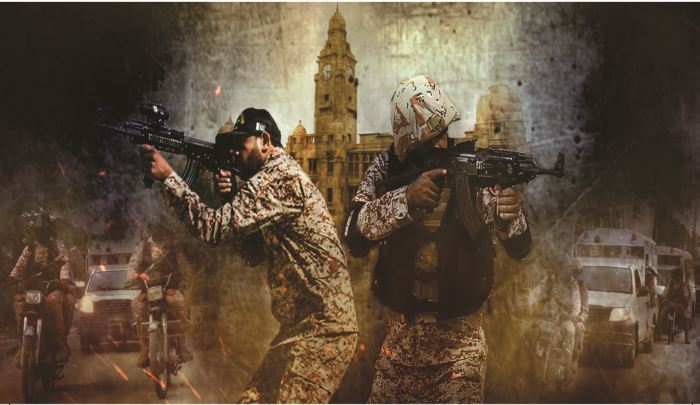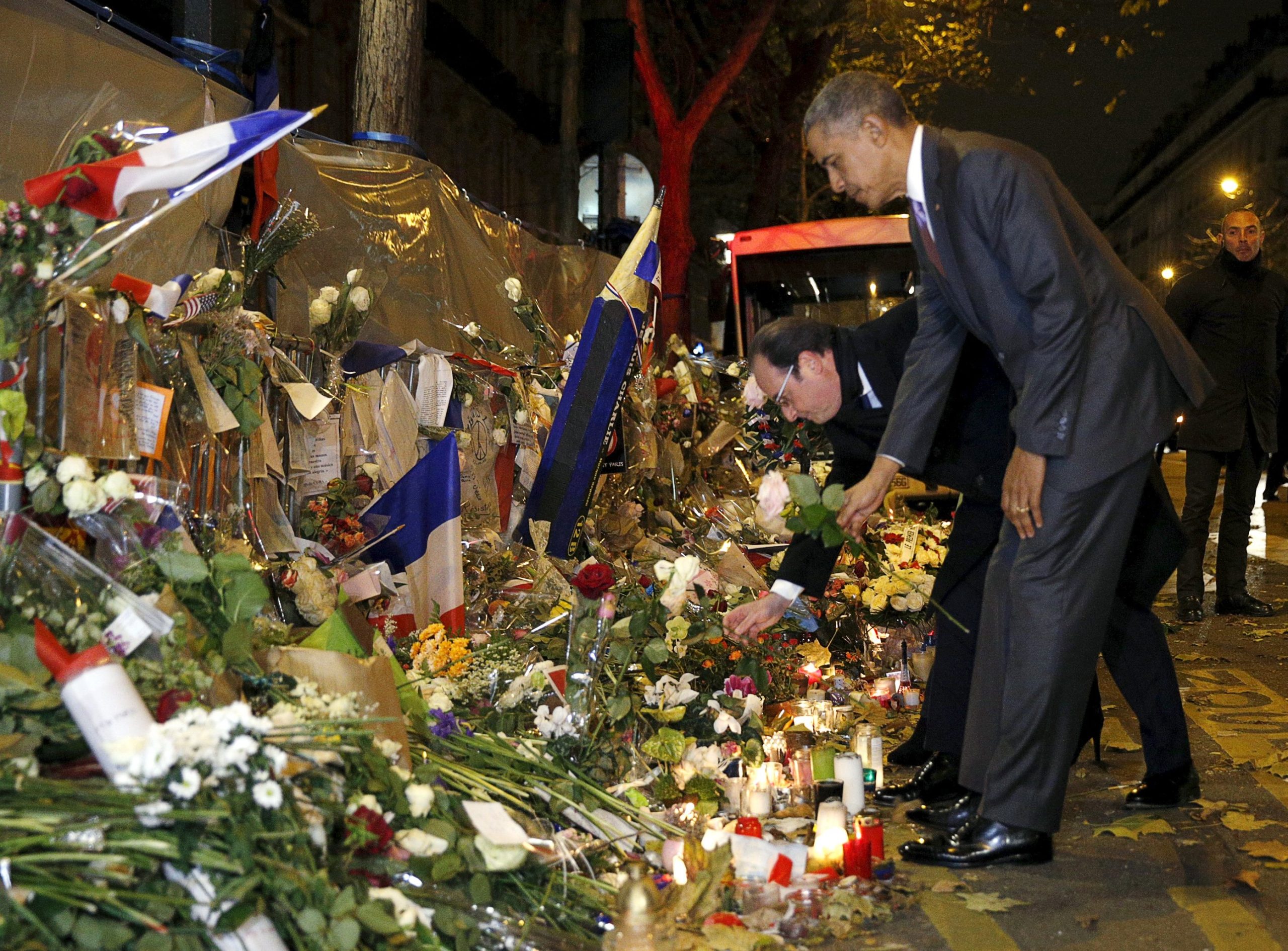Friday Nov 13 will go down as the day when horror visited Paris in a wave of coordinated terrorist attacks against soft targets by gunmen and suicide bombers wearing suicide vests. At least 150 people died, among them concertgoers and restaurant diners, while more than 160 were injured seven of the attackers were also killed. The deadliest terrorist attack on Europe since the 2004 Madrid train bombings, the Islamic State (IS) claimed retaliation for French airstrikes on “Daesh” targets in Syria and Iraq. They vowed France would remain on the “top of the list” of their targets.
Pakistan is no stranger to acts of terror. In just once such incident more than 130 school children of the Army Public School (APS) in Peshawar were mercilessly massacred, all were between eight and eighteen years of age. Our country is held hostage by an extremist mindset where violence moves in swift circles with no one really safe. In a sense the Paris attacks confirm that innocent victims will be whoever they are and wherever they may be. Pakistan has had to pay a heavy price being host to a number of militant and terrorist organizations, no one should discount the possibility of over home-grown bigots being influenced by the success of the Paris atrocity, we must be prepared to act to foil copycat attacks. While there are difficulties in predicting attacks inspired by larger groups, greater vigilance must ensure our intelligence agencies closely monitoring those who pose the highest threat. We must be also prepared for infidelity of personnel, particularly from security services, both official and private. Punjab Governor Salman Taseer’s Police bodyguard and killer Malik Mumtaz Qadri, who is in jail awaiting execution, inspired another police constable to shoot dead a pastor and injure a mentally ill inmate, both of whom were on death row for allegedly committing blasphemy.
When a soldier or lawman ends up killing one of his own, either by misidentifying the target as hostile or due to errors or inaccuracy, it is called ‘blue-on-blue’. However when a soldier deliberately kills one of his own or attempts to do so, this is called ‘fragging’, a term coined by US military personnel during the Vietnam War when such killings were most often attempted with a fragmentation grenade. Fragging continues even today and a number of cases have been reported where Afghan soldiers have turned on either their local comrades or their American counterparts and attempted to kill them. According to a report ‘Fragging in Afghanistan’, since May 2007 Afghan security forces launched at least 45 attacks. About 70 or more NATO troops were killed and hundreds more wounded. In Pakistan we call it “infidelity”. The verification of antecedents of security guards, particularly those protecting leaders and foreign personnel is a must. Pulling a fresh guard from the street and putting him in uniform without checking his credentials is an atrocity wanting to happen.
Established after the APS atrocity to crack down on terrorism and to supplement the ongoing anti-terrorism operation in the north west, the 20-point National Action Plan (NAP) received unprecedented levels of support across the country’s political spectrum. Despite this consensus many facets of the National Action Plan (NAP) has not materialized to its projected capacity and potential, its effectiveness compromised by vested political interests, particularly in Sindh and Punjab. The media has been most irresponsible, while some action has been taken against a section of the media espousing hate, Anti-Terrorism Act 1997 is still inadequate to ensure convictions for such crimes. One of the weak points lies in our judicial system as it currently stands, there is an acute need to initiate reforms in our criminal courts so as to strengthen anti-terrorism institutions but for some strange reason this vital area remains neglected. Much emphasis was placed on stopping the funding of terrorists and terrorist outfits from internal and external sources but here too nothing concrete has been done, terror financing through money-laundering continues unabated and remains a worrying threat. While IS might not be actively operational in the Pakistan-Afghanistan region, can we discount with certainty the possibility of their using the Maulana Aziz of Lal Masjid, etc – types as their willing proxies for financing and recruitment purposes?

There is now a definite feeling among the people and in the military establishment that the Rangers-led operation in Karachi has run into problems not being matched by matching/complementary governance initiatives by the Sindh govt. On the contrary many hurdles have been erected, consequently some concern was expressed by the military over progress on NAP implementation through an ISPR statement about “governance” issued after a Corps Commanders’ conference last month warning that the Army’s efforts to counter terrorism could be affected due to inadequate support by civilian agencies.
One of the tasks of the NAP was to reinvigorate the process of madrassa reforms but madrassas have yet to be registered and some, though not all, continue to pose a threat. Those located in the remote areas constitute the really severe problem, many are small one-shack establishments. There is no way of knowing how many students are studying there, what is their curriculum – they might well be imparting militant education/training – and where does their funding come from?. A registration process will keep tabs on the exact number of these ‘schools’ running because of the ‘generosity’ of Gulf petrodollars. It is not without good reason that a fairly large section of academics, policymakers and media sources, both within and outside Pakistan, are of the view that a nexus exists between madrassa curriculum, religious extremism and militancy, resulting in Talibanisation and terrorism. While all madrassas are definitely not involved in teaching hatred and militancy, it is vital to investigate the sources of funding. In 2002 Gen Musharraf made solemn pledges towards madrassa reforms i.e. registration of all madrassas, regulation of curriculum by the govt, etc to ensure that madrassas are not used as centers to spread hate and militancy, setting up of model madrassas, etc. Unfortunately these lip-service promises remain unfulfilled, only three model madrassas were set up.
The happenings on the night of Friday the 13th should be carefully assessed by our rulers and political leaders, some lessons must be learnt. Pakistan has the largest number of banned terrorist organizations in the world, how do they still manage to remain active under new names? This could not be possible without political patronage! While terrorist violence has abated, the stated anti-terror policy must be implemented in full and in all sincerity to ensure the future of our children.




